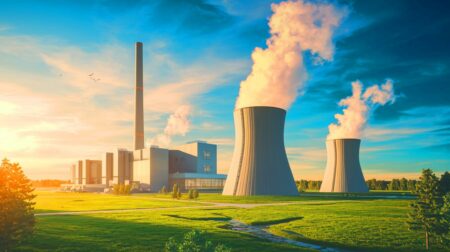Angola recently edged out Nigeria as the African continent’s top oil-producing nation, with the economies of both nations highly dependent on oil and gas revenues. Yet as the world moves toward a fossil-free future, there are no clear pathways on how to transform Africa’s extractive economies — and perhaps no project illustrates the problem more than the ongoing fight over the East African Crude Oil Pipeline Project (EACOP).
EACOP is a joint project of the governments of Uganda and Tanzania, where national oil companies hold 30% interest in the 1,443-kilometer pipeline. A China National Offshore Oil Corporation (CNOOC) subsidiary owns 8%, with the remaining 62% held by majority investor TotalEnergies, based in France.
Ugandan President Yoweri Museveni says oil will flow through the pipe by 2025, bringing much-needed revenue and energy access for regional development. But legal challenges and recent gains by project opponents, including pressure on banks that have backed out of the process, have made that timeline less certain.
The Sumitomo Mitsui Financial Group (SMBC Group) says it’s no longer an EACOP partner, while issuing a new “Strengthening Efforts Against Climate Change” investor report on Monday that details the firm’s climate risk reductions in the oil and gas sectors.
The London-based Standard Charter Bank says it won’t fund the project, either. In late April, the bank issued a “Net Zero Roadmap” statement that says it plans 29% reductions in the oil and gas sector by 2030, from its 2020 baseline, in keeping with International Energy Agency (IEA) guidelines on achieving the Paris Agreement target of 1.5°C in global temperature rise. The World Meteorological Agency recently made clear the threats to achieving the target.
The StopEACOP coalition, which includes highly visible climate actors like 350.org as well as local African leaders, says 49 major banks and insurance companies have decided not to support the Uganda-Tanzania pipeline. They include Germany’s Allianz, which said in an email to campaigners that the project “neither meets our climate ambition nor falls within our ESG risk profile.”
The project costs between $3.5 billion and $4 billion, with TotalEnergies claiming nearly $2 billion in investments earlier this month in a statement focused on what it calls “10 Misconceptions” about EACOP.
“The world still needs oil and reasonably priced oil, now and for a few years to come. This is the very purpose of the project, which provides for oil production over 20 years,” the company said.
“TotalEnergies does not intend to just produce Ugandan oil, which will be extracted in any case, but also to be a major player in renewable energy in Uganda and to meet the local population’s vital everyday needs through measures like electrification and access to water.”
The company also played down the pipeline impacts to water resources, biodiversity, human rights and the affected communities that lie on the EACOP route. About 5,000 people need to be relocated but their lives will improve, the company said.
Ugandan activists like Hilda Nakabuye, in Paris on Wednesday to place pressure on Total funder Crédit Agricole Group, say limiting fossil fuels is the only path forward and the pipeline is a “carbon bomb” for her nation. Yet elected officials, including Ugandan MP Thomas Tayebwa, have said interference with the project reflects “neocolonialism and imperialism” in the life of a sovereign nation that’s free to benefit from its own oil and gas resources.
The latter view is often taken by African governments and fossil fuel project leaders who argue that oil and gas promise to be transformative for their people. Yet, as World Resources Institute expert
“The goals of the Paris Agreement have urged some investors to back out of funding further fossil fuel projects. These mixed signals create uncertainty for investors and planners,” he writes. “Countries could be at risk of being left with stranded assets if they invested in new oil and gas infrastructure. And governments focused on fossil fuel extraction might miss out on clean alternatives (like green e-fuels).”
Did you like it? 4.5/5 (26)









